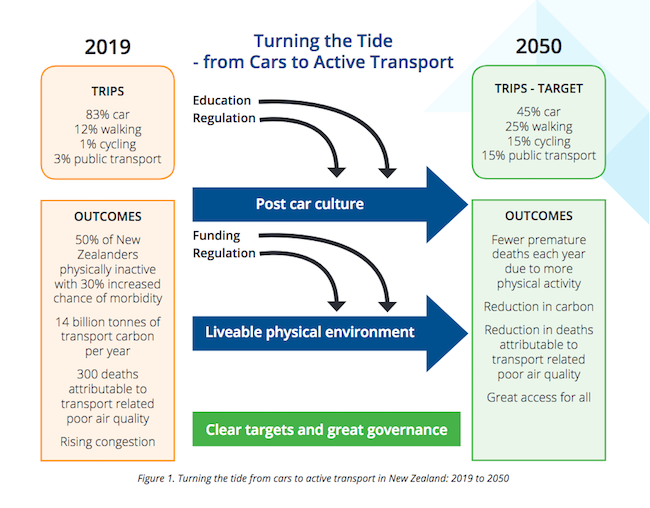Thursday 23 May 2019 11:01am
Associate Professor Kirsten Coppell, public health physician and EDOR co-director, is concerned about the health effects of our increasing reliance on the car as our primary mode of transport.
Following The Active Living and Environment Symposium (TALES), held in February 2019, Dr Coppell has co-authored a report listing key policy recommendations to increase active transport in New Zealand.
The Turning the Tide report promotes active transport (walking, cycling and wheeling) as an opportunity to maintain equitable access and, at the same time, reduce carbon emissions, improving both our national health and environmental wellbeing.
Turning the Tide - from Cars to Active Transport, recommends a number of national targets aimed to reduce the percentage of car trips from 84% in 2018 to 45% by 2050:
- double the proportion of walking trips to 25% of all trips
- double the proportion of cycling and public transport trips each decade so that 15% of trips are by bicycle and 15% are by public transport
To help achieve these targets, the following strategies are proposed:
- a nationally coordinated and funded programme of education and promotion of active transport
- a commitment to design cities for people and not for cars
- a regulatory system that encourages the use of active transport

Read the report
Turning the Tide - from Cars to Active Transport, Authors: Sandra Mandic, Andrew Jackson, John Lieswyn, Jennifer S Mindell, Enrique García Bengoechea, John C Spence, Ben Wooliscroft, Celia Wade-Brown, Kirsten Coppell, Erica Hinckson
The next phase
Development of key policy recommendations for active transport in New Zealand: A multi-sector and multidisciplinary endeavour, Journal of Transport & Health, Volume 18, September 2020, 100859
Find out more
Urgent action needed to end our love affair with cars, University of Otago, 29 April, 2019

